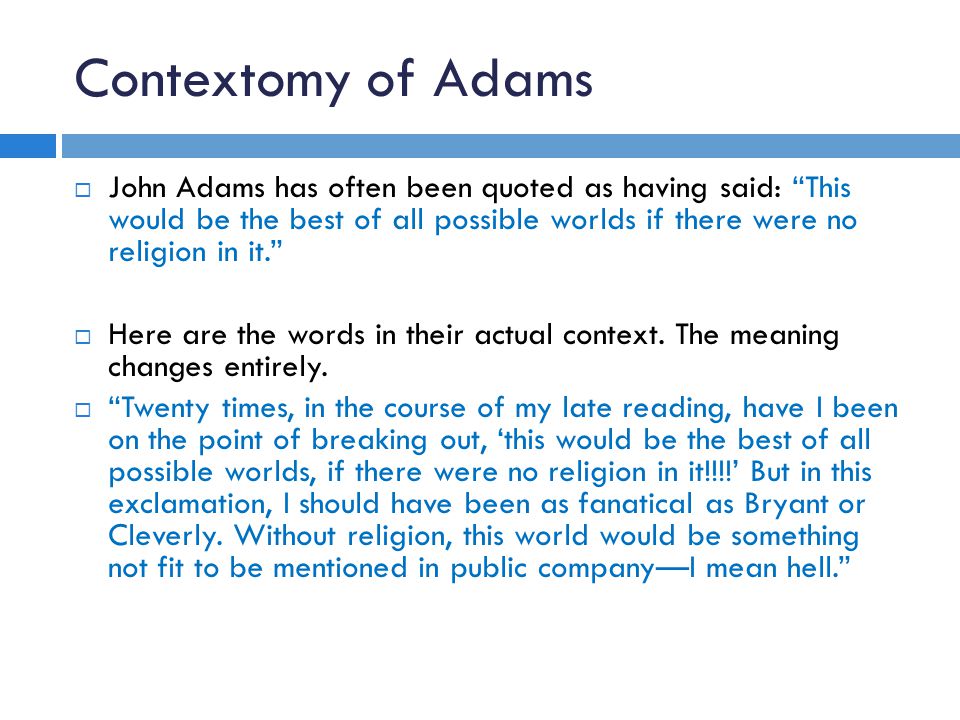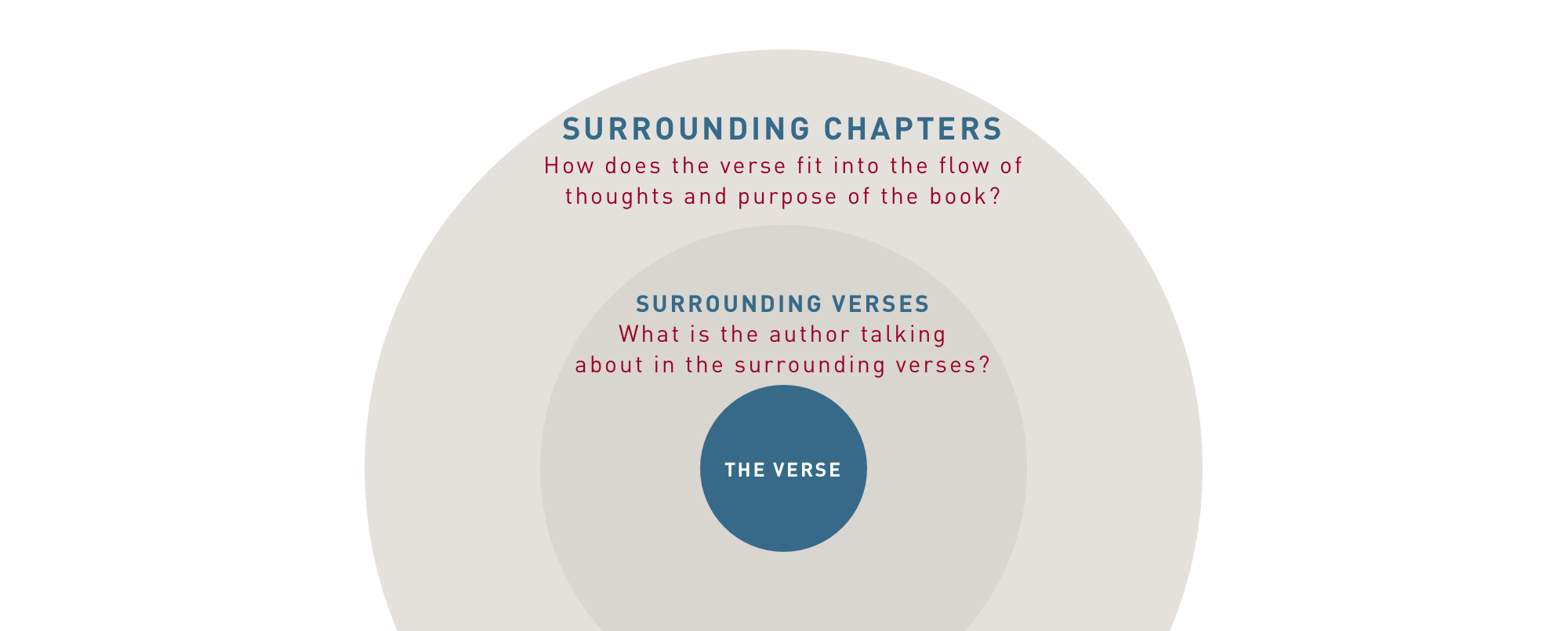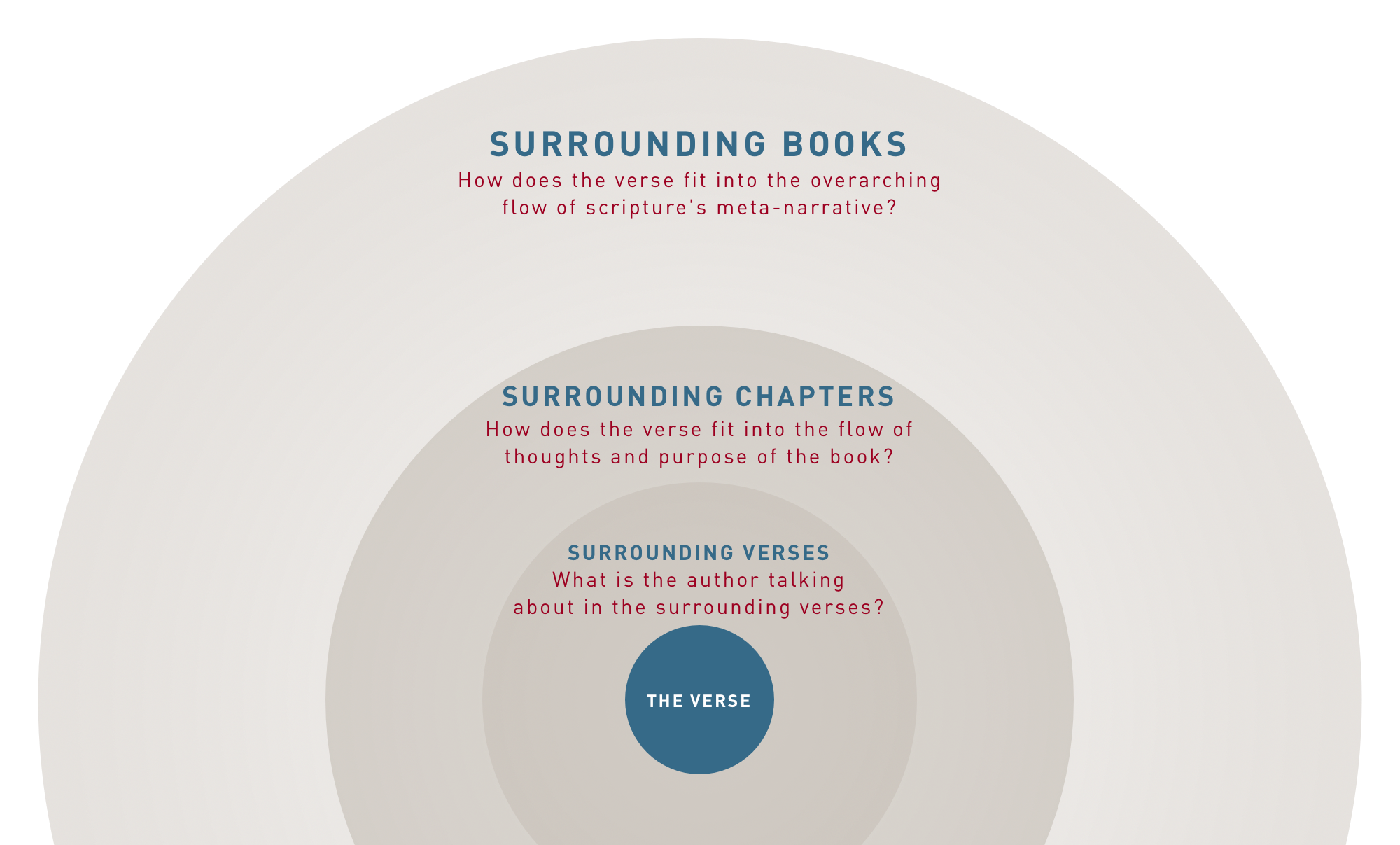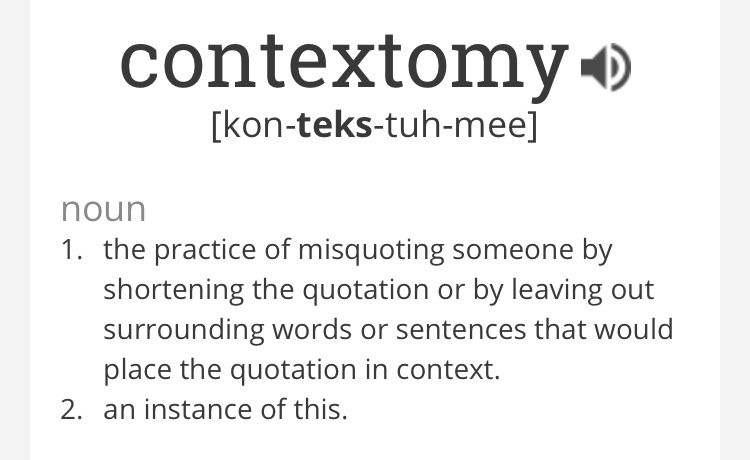[ kon-teks-tuh-mee ] noun. the practice of misquoting someone by shortening the quotation or by leaving out surrounding words or sentences that would place the quotation in context. (also known as: fallacy of quoting out of context, quoting out of context) Description: Removing a passage from its surrounding matter in such a way as to distort its intended meaning. dictionary.com

Pulling quotes out of thin air may seem innocuous to justify one’s point, but doing so leaves out crucial information that may completely change the meaning of what is represented.
For an example of classic contextomy, let’s look at the graphic to the right. Notice that the quote is pulled from the middle of the entire quote. Used to justify a religion-less union, Adams was actually saying something completely different than what was initially presented.
Biblical Context Changes Everything
The same is true when it comes to bible quotes. Often, a person will share what they think is a quote that proves a point they are making; however…

…a verse should never be disconnected from its surrounding context.

Each verse is connected to the surrounding verses, which are connected to the passage as a whole, which usually contains some sort of teaching.

These passages make up chapters and are surrounded by more chapters which make up the book.

Even the individual books in the Bible are tied to one another. We can’t simply open to a random verse, take it completely out of the surrounding context, and be confident it fits our indended purpose. The biblical context of any verse or passage is extremely important.

For an example of biblical contextomy, let’s look at the graphic to the right. Here we have a quote that often supports the worship of God, the +Creator; however, who was the entity actually speaking in this verse?
If we take this verse from the entirety of chapter 4, we find that Jesus is being tempted in the deserty by Satan. It is the devil who is speaking in this snippet of text, not God.
The Sitz
Additionally, we must take into account the Sitz, or the context of the time period when the passages were/are written.
In Biblical criticism, Sitz im Leben (German pronunciation: [ˈzɪts ʔɪm ˈleːbm̩]) is a German phrase roughly translating to “setting in life“. It stands for the context in which a text, or object, has been created, and its function and purpose at that time.
Oxford Reference
When engaging in biblical contextomy, we have to be cognizant of what was going on at the time these texts were written – and by whom. We need to remember the societal contexts, too. We even need to be cognizant of what texts were stolen from or for other great works, such as the Epic of Gilgamesh and others.
So the next time you’re reaching for that quote to prove your point – remember the larger meaning of the teaching, not just the few words that prove your point. Otherwise, you might be quoting and supporting Satan – not God.

